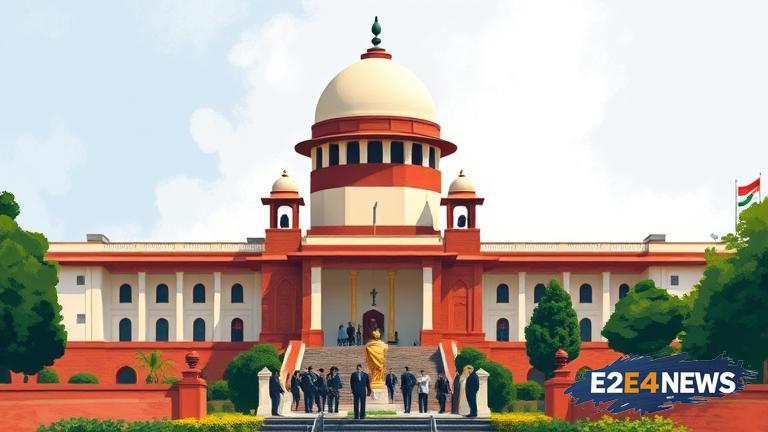The Supreme Court of India has denied a request to expedite the hearing of pleas related to the restoration of statehood in Jammu and Kashmir. The court has decided to stick to its original schedule, which means the hearing will take place in due course. The pleas, filed by various petitioners, challenge the abrogation of Article 370 of the Indian Constitution, which granted special status to the state of Jammu and Kashmir. The petitioners argue that the abrogation of Article 370 was unconstitutional and that the statehood of Jammu and Kashmir should be restored. The Supreme Court had earlier listed the matter for hearing in October, but the petitioners had requested an earlier hearing date. However, the court has refused to grant an early hearing, citing its busy schedule and the need for a thorough examination of the issues involved. The decision is seen as a setback for the petitioners, who had hoped for an early resolution to the issue. The abrogation of Article 370 has been a contentious issue, with many in Jammu and Kashmir opposing the move. The Indian government has argued that the abrogation of Article 370 was necessary to integrate Jammu and Kashmir with the rest of the country and to promote development in the region. However, the opposition parties and many residents of Jammu and Kashmir have argued that the move was unconstitutional and has led to a decline in the region’s autonomy. The Supreme Court’s decision to refuse an early hearing has been criticized by some, who argue that the court should have prioritized the matter given its importance. Others have welcomed the decision, arguing that the court should take its time to thoroughly examine the issues involved. The hearing of the pleas is expected to be a significant event, with many expecting the court to deliver a landmark verdict. The verdict could have far-reaching implications for the region and the country as a whole. The Indian government has been facing criticism for its handling of the situation in Jammu and Kashmir, with many arguing that the abrogation of Article 370 has led to a decline in the region’s autonomy and an increase in human rights abuses. The Supreme Court’s decision to hear the pleas is seen as an opportunity for the court to examine the issues involved and to deliver a verdict that will have a significant impact on the region. The court’s decision is expected to be closely watched, both within India and internationally. The international community has been critical of the Indian government’s handling of the situation in Jammu and Kashmir, with many calling for the restoration of the region’s autonomy. The United Nations has also expressed concern over the situation in Jammu and Kashmir, with the UN Secretary-General calling for a peaceful resolution to the issue. The Indian government has argued that the situation in Jammu and Kashmir is an internal matter, but the international community has argued that the issue has significant implications for regional and global peace and security. The Supreme Court’s decision to hear the pleas is seen as an opportunity for the court to examine the issues involved and to deliver a verdict that will have a significant impact on the region and the country as a whole. The hearing of the pleas is expected to be a significant event, with many expecting the court to deliver a landmark verdict. The verdict could have far-reaching implications for the region and the country, and could potentially lead to a resolution of the issue. However, the outcome of the hearing is uncertain, and it remains to be seen how the court will rule on the pleas. The Supreme Court’s decision to refuse an early hearing has been criticized by some, who argue that the court should have prioritized the matter given its importance. Others have welcomed the decision, arguing that the court should take its time to thoroughly examine the issues involved. The hearing of the pleas is expected to be a complex and contentious process, with many different parties and interests involved. The Supreme Court will need to carefully consider the issues involved and to deliver a verdict that is fair and just. The verdict could have significant implications for the region and the country, and could potentially lead to a resolution of the issue. The international community will be closely watching the hearing, and the outcome could have significant implications for regional and global peace and security.
